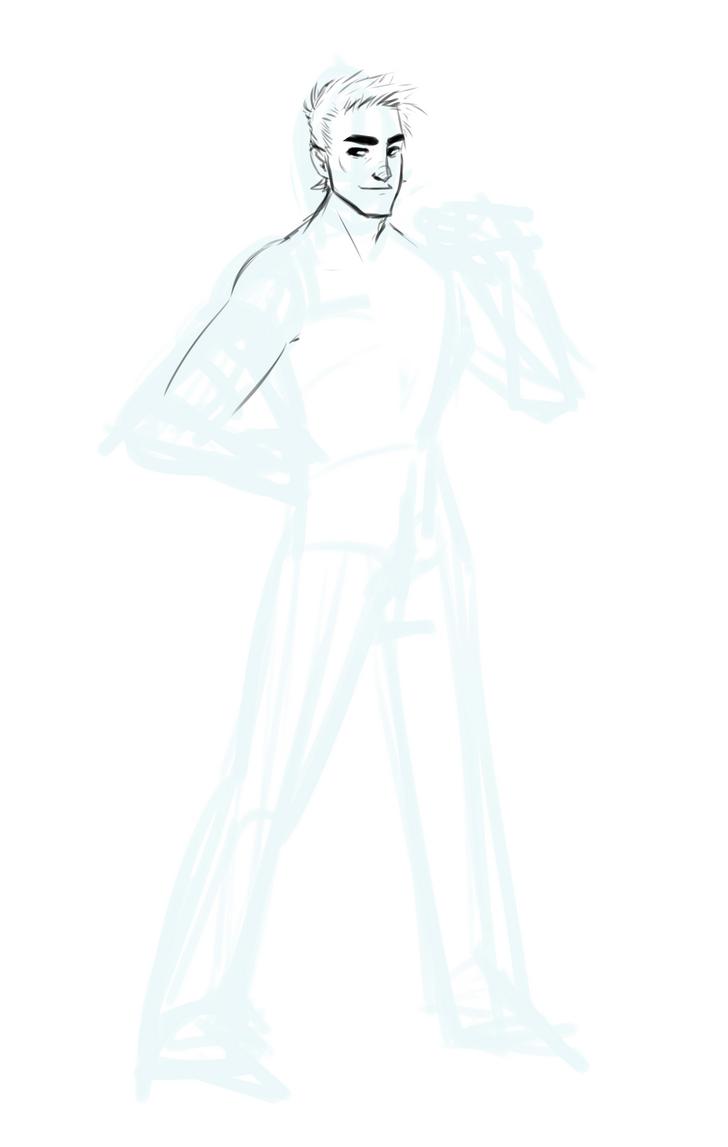|
For some reason, my writing tips entries seem to garner a larger audience than my other rants, so I'll give this one an intentional try. Ahem... Now, please understand, all the advice I'm sharing is based on what I've put together on my own as well as writing advice I've garnered from those that have already been there. Take what you can, use it, and learn more through doing. So the other day I touched on character flaws and how they can make a character more relatable. I think I touched on how Superman, for me, is a more boring character than, say, Batman. Sure, Superman's been defeated, but in the end, you always know he's going to win. I suppose, to a lesser extent, you generally know that protagonists are going to win, but at least with other characters, you feel like there's a sliver of a chance of failure. Flaws allow growth. Kevin Smith, of all people, had a great quote on the whole Batman / Superman thing. Paraphrased, not all of us can be born Superman, but if we try hard enough, we can all become Batman. I think that's great and it gets to the heart of what makes a character engaging. Growth. A perfect character with zero flaws isn't going to change over the course of a novel, and as a reader, isn't that what we're in this for? We want to see this person learn, make mistakes, grow, and become a better version of themself. That's the pretty philosophical aspect of it, but what about the practical aspect? I'd like to think I'm nothing if not practical, so here's where I come at the situation from. Tension in a story is created when your character wants something and something is stopping them from getting it. Of course you can have external factors like your antagonist or nature, or whatever, but the obstacles that really touch home are when your character is facing themselves. Maybe Reagan isn't getting the cooperation of other Paladins to help with his far-fetched schemes because he's been an ass to them. Perhaps Jonathan could've helped more during that last mission if he wasn't so scared. Maybe Giz could get others to cooperate more if she was more willing to open up. The point is, when it's Man vs Man, Man vs. Nature, or Man vs Self, the last one is easily the most moving and poignant. Now, how do you decide on a good flaw for your character? The same way you deal with coming up with any obstacle. Map out your plot (YES! You need to outline your plot!) and look for moments where you can insert obstacles. It might be a car wreck in one scene or a bank robbery in another. But perhaps, when you look at the scenario, look at the characters, maybe the person's own shortcomings are the best obstacle. You may go into this with the idea that completely finished characters are simply being dropped into your story, but you can't think like that. Until you type "The End" for the last time before shipping the manuscript off to your agent, your characters are as fluid and changeable as the story itself. Maybe after your first draft you realize the protagonist has a crippling fear of dogs. Maybe it works better with the story if they're a little self-centered. Perhaps they mean well, but they're easily swayed by others. The best way to get to know your characters is to write them. And rewrite them. Also, on a side note, I've got a little treat! Check back tomorrow to learn a little bit more about some of the characters in The Paladin, such as this handsome fellow right here. That's right, new art incoming! Check back tomorrow for the first one! 'Til then, don't forget to be awesome!
Art courtesy ektetrolldom.tumblr.com/
0 Comments
Leave a Reply. |
Matias TautimezKeep your eyes open for my debut novel, The Paladin. Archives
January 2023
Categories |
About the Author |
Contact |
|

 RSS Feed
RSS Feed